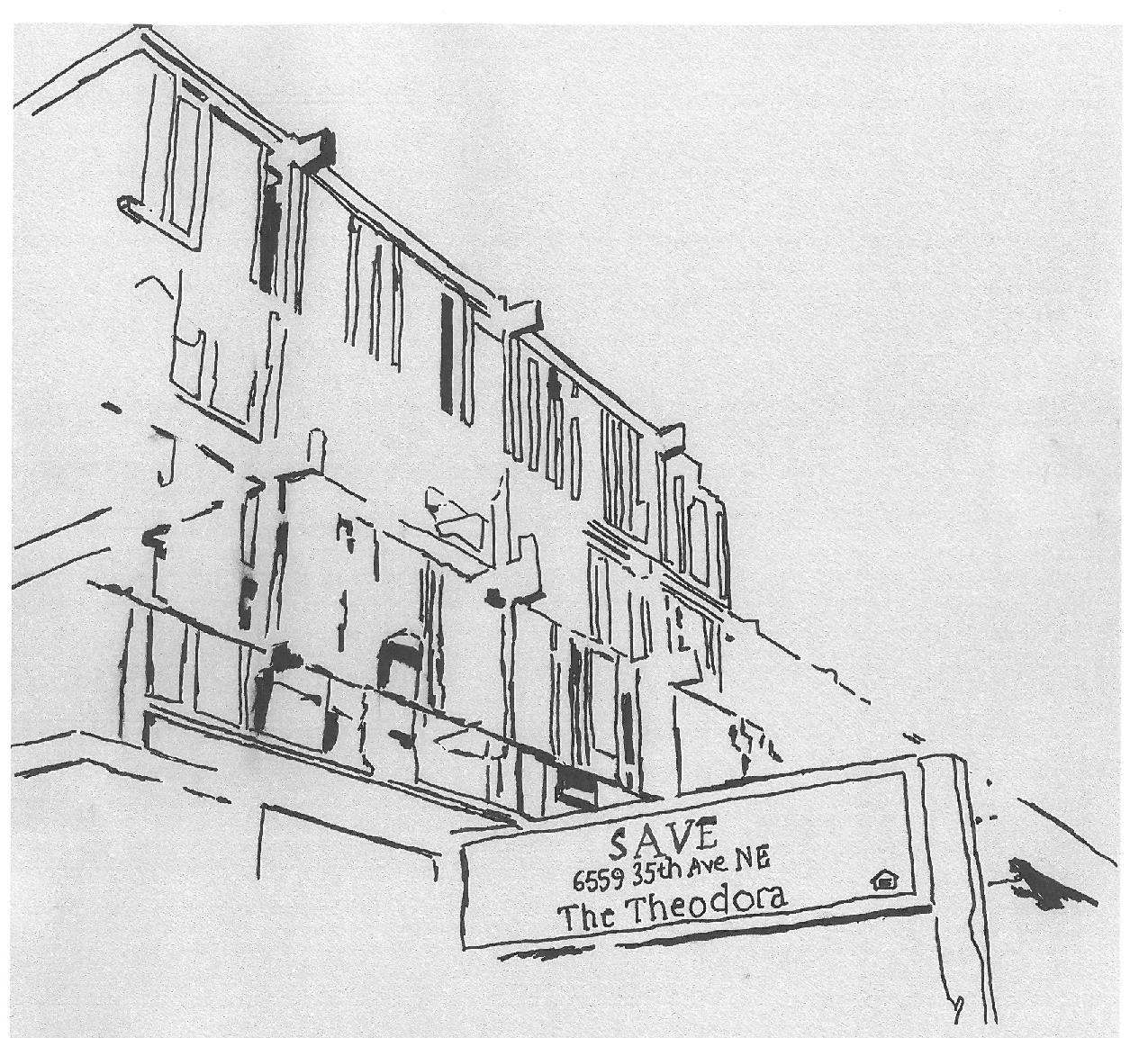As Seattle’s development frenzy continues, another group of tenants is trying to stave off eviction. A tenants group from a Ravenna building for seniors and the disabled, called Theodora Apartments, filed suit this morning in federal court, claiming that their ouster amounts to a violation of the Fair Housing Act. The tenants are seeking an injunction that would halt the sale of the 115-unit building from Volunteers of America, the national non-profit that currently owns the building, to Goodman Real Estate, the private company responsible for posting eviction notices and jacking up the rents in Ballard’s Lockhaven apartments.
Volunteers for America built the Theodora specifically for seniors in 1965 with the help of a low-interest HUD mortgage, according to Eliana Horn, an organizer with the Tenants Union, which has been advocating for residents and is putting on a press conference at the building this afternoon. Eventually, its subsidized housing program was expanded to include disabled residents as well.
The “efficiency” units were small and had no kitchens. But Volunteer for America, a Christian group, kept rents low—they currently stand at $530 a month—and offered three meals a day at a very reasonable rate, now $320 a month.
Horn claims that about five years ago, something changed at the Theodora. The non-profit seemed to lose interest in the building and embarked on a period of what she terms “mismanagement.” A 2012 letter to Volunteers of America from the state Department of Social and Health Services said that the state would no longer be placing people at the Theodora as it once did. DSHS cited a number of code violations, including failing to ensure that tenants were treated with respect and failing to make sure the water was hot enough to bathe and wash dishes.
Then, last August, the non-profit sent a letter to tenants informing them that the building was going on the market and they would have to relocate. “Because of its age, condition and the changing needs of residents, The Theodora was no longer viable,” the letter read. Volunteers of America promised that it would help with relocation. But Horn says many of the residents who have left have landed in worse conditions, often in far-out neighborhoods with few amenities. Voice of America has not yet returned calls seeking further comment.
Twenty-seven residents still remain in the building, Horn say. And they are hoping to derail the sale. Lawyer Eric Dunn of the Northwest Justice Project, which is representing the tenants, say their lawsuit rests upon the notion that the sale would “disproportionately impact” people with disabilities, who are a protected class under the Fair Housing Act. He says such a strategy has been used before to good effect, mentioning a lawsuit in the New Jersey town of Mount Holly that was brought to prevent demolition of a housing project populated by minorities. A settlement last year won the residents some concessions, although the legal process dragged on for ten years.
In the case of the Theodora, the tenants’ case rests in part on the argument that Volunteers of America did not reach out to other non-profits to see if they would be willing to buy the property. “We know if other non-profits developers were given the opportunity, they could and would make competitive offers.” Volunteers of America contests this, telling KOMO in the spring that it contacted 75 local and national non-profits to see if they were interested. None were, according to the non-profit.
In its letter to residents, the group also said that will use proceeds from the sale of the Theodora to “create new affordable housing in north Seattle.” Horn says there’s no information on how many units will be built or who the potential facility might serve.
In the mean time, Goodman is making plans for the building. Reached this morning, Goodman CEO George Petrie said he was headed to a meeting and couldn’t talk about the project or the lawsuit, which he said he was unaware of. He said he would follow up later, and the post will be updated accordingly.
According to Horn, Goodman intends to both remodel the Theodora and develop a new building next door, on what is now a parking lot. There will actually be less units in all because the company is combing units in the Theodora and making them bigger.
Goodman has implied it will keep the building somewhat affordable by saying it is targeting would-be tenants who earn less than the median income. Horn, however, points out that there are no guarantees and even so-called “affordable” rents run high. A chart put out by the City Office of Housing determines that an individual earning 80 percent of the area median, or $49,440, could afford a one-bedroom costing $1,324 a month.








